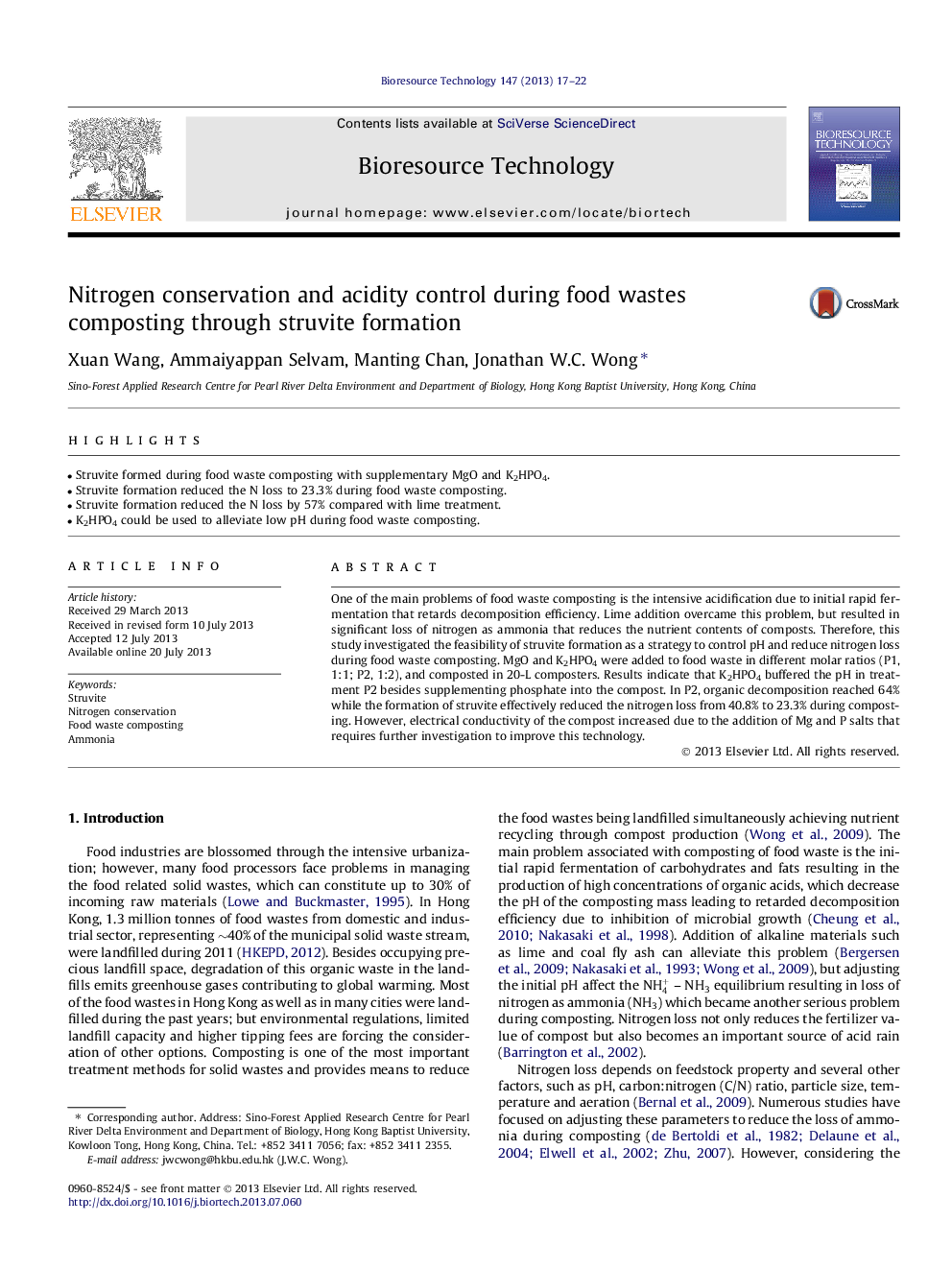| Article ID | Journal | Published Year | Pages | File Type |
|---|---|---|---|---|
| 7080840 | Bioresource Technology | 2013 | 6 Pages |
Abstract
One of the main problems of food waste composting is the intensive acidification due to initial rapid fermentation that retards decomposition efficiency. Lime addition overcame this problem, but resulted in significant loss of nitrogen as ammonia that reduces the nutrient contents of composts. Therefore, this study investigated the feasibility of struvite formation as a strategy to control pH and reduce nitrogen loss during food waste composting. MgO and K2HPO4 were added to food waste in different molar ratios (P1, 1:1; P2, 1:2), and composted in 20-L composters. Results indicate that K2HPO4 buffered the pH in treatment P2 besides supplementing phosphate into the compost. In P2, organic decomposition reached 64% while the formation of struvite effectively reduced the nitrogen loss from 40.8% to 23.3% during composting. However, electrical conductivity of the compost increased due to the addition of Mg and P salts that requires further investigation to improve this technology.
Related Topics
Physical Sciences and Engineering
Chemical Engineering
Process Chemistry and Technology
Authors
Xuan Wang, Ammaiyappan Selvam, Manting Chan, Jonathan W.C. Wong,
